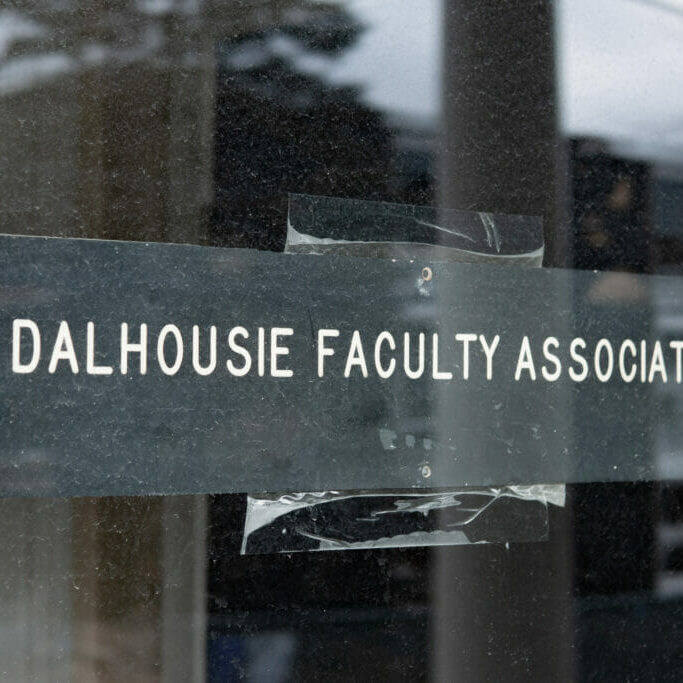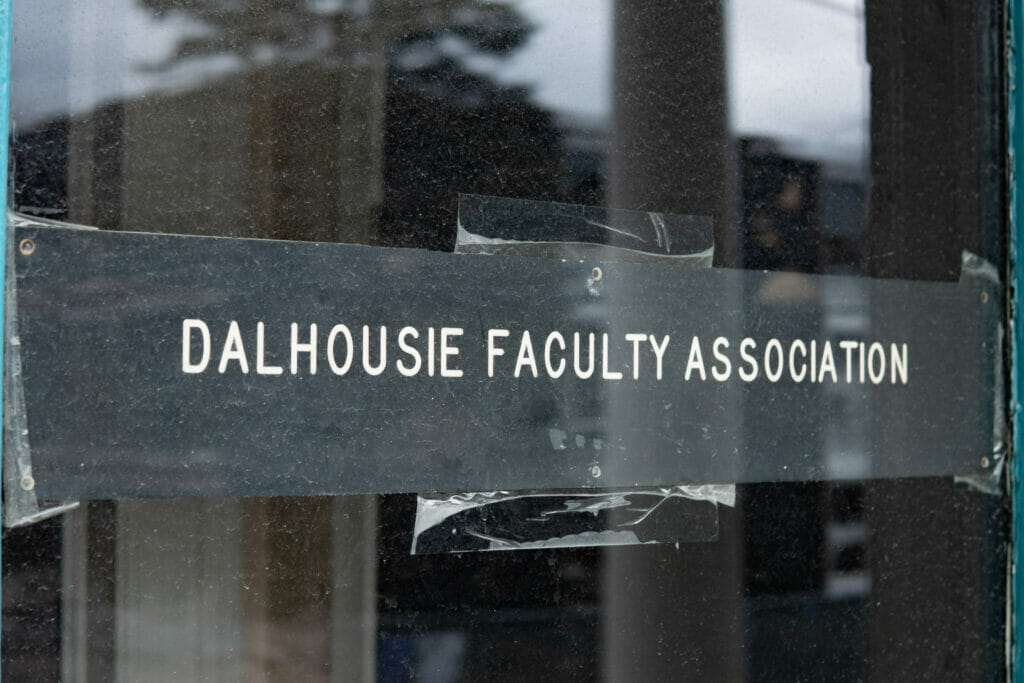
Reaching middle ground
After lengthy debate, DFA and Dal sign tentative agreement
Students have one less thing to worry about this term as the Dalhousie University board of governors (BoG) and the Dalhousie Faculty Association (DFA) were able to leave their disagreements in 2020.
The two parties resolved all outstanding issues to reach a tentative agreement in a meeting with provincial conciliators on Jan. 8, 2021, the university said in an email to students on the same date.
The DFA membership voted to ratify the agreement on Jan. 21, the DFA said in a press release. The agreement will become official once the BoG hold their ratification vote on Feb. 9, DFA President David Westwood said in an interview with the Dalhousie Gazette. Westwood could not reveal specific details regarding agreed upon bargaining demands with the Gazette, as the BoG is yet to ratify the agreement, meaning there is still a possibility of it being altered. But Westwood said he has no reason to believe the BoG won’t ratify it as planned.
Once ratification is complete, the new collective agreement between the BoG and the DFA will be in effect from July 1, 2020 to June 30, 2022.
In an email to the Gazette Janet Bryson, Dal’s associate director of media relations and issues management, said the university has no further comments to make regarding the agreement beyond the email sent to students on Jan. 8.
Important gains for faculty
When negotiations began last summer, the DFA approached bargaining with a majority of non-monetary demands, “recognizing the challenges people were now facing because of COVID-19,” Westwood said. Many of these demands have been achieved in the new agreement, which is “hugely important,” Westwood said.
When the pandemic forced classes online, Dal professors were tasked with presenting university quality lectures from their homes, which was a source of concern for the DFA.
“It was important to folks that, you know, Dal recognized that we’re kind of working in our home offices here on our own dime,” Westwood said.
As part of the agreement, Dal agreed to reimburse faculty “to a reasonable extent” if they require equipment such as a new microphone to conduct classes, Westwood said.

Another successful demand born out of the pandemic is the copywriting of online teaching materials.
“Teaching online created a context in which we hadn’t really negotiated collective agreement previously,” Westwood said. “So there were robust protections in place for the copyright of academic work and teaching materials generally, but we just wanted the [BoG] to confirm that this set of protections would extend towards if we put lectures online.”
The DFA is also pleased to have made gains for its members on issues independent of the pandemic, such as increased support for extraordinary administrative workloads placed upon faculty members of designated groups.
Practically, this means greater support for faculty members who are a part of designated groups – defined by the federal government as women, Indigenous peoples, people with disabilities and People of Colour – who are asked to use their experiences and knowledge to aid in matters of diversity and equity at the university.
“It tends to be the case that they get asked 10 times more often than non-designated group members to do administrative work, and they don’t get credit for it,” Westwood said. Prior to the collective agreement reached in 2018, “there wasn’t really any recognition of that happening,” Westwood said.
To aid faculty members struggling with increased workloads as a result of this issue, the university agreed in 2018 to provide supports such as a research assistant to professors doing this extra administrative work.
But this didn’t solve much, Westwood said. The supports were funded by individual faculty budgets, which often couldn’t afford them, Westwood said.
“So just to give them the support they needed, somebody would have to lose out,” he said.
In the new agreement, deans will be able to request funding from the provost level if their faculty budget can’t accommodate the required supports.
“It’s sort of a procedural way to make sure that an agreed-upon principle could actually be delivered,” Westwood said.
Potential deal fell apart in December
After negotiations remained stagnant throughout the summer, the DFA filed for a conciliator on Sept. 22, 2020, to help bring the two sides closer together over disagreements on the pension plan. That pension issue –– which forced conciliation to fail on its first day and prompting a conciliation board to be struck –– had been resolved in December.
After that resolution, the conciliation board drafted a list of recommendations meant to be the basis of the agreement. The DFA accepted the recommendations on the condition the BoG would as well, which they expected them to do, according to a DFA press release in December.
But the BoG rejected just one of the recommendations, bringing bargaining to a halt once more. The BoG took issue with a non-monetary recommendation the DFA had included in its list of demands concerning educational leave for instructors; the conciliation board had sided with the DFA’s position on the issue and included it in their recommendations.
Dal professors and permanent instructors are granted a sabbatical or educational leave every seven years. For professors, the years they spent working in limited-term appointments are counted, for instructors they are not, Westwood said. As a part of the new agreement, the DFA wanted those years to count towards educational leave for instructors.
“It wasn’t really clear why that was the case, because the principles are exactly the same,” he said. “You work years in a limited-term role, and then eventually you get a permanent job, why should that service be counted differently for two different kinds of employees?” Westwood said.
According to Westwood, the conciliation board agreed and therefore included the demand as a recommendation.
The BoG did make it clear they wanted to do something to better support instructors, “just not this thing,” Westwood said.
Ultimately, the conciliation board was able to convince the BoG to meet the DFA halfway at the final Jan. 8 meeting.
As a result, instructors will now have a certain number of their limited-term years count towards educational leave. Westwood could not share the exact number of years prior to the BoG’s ratification vote on Feb. 9






